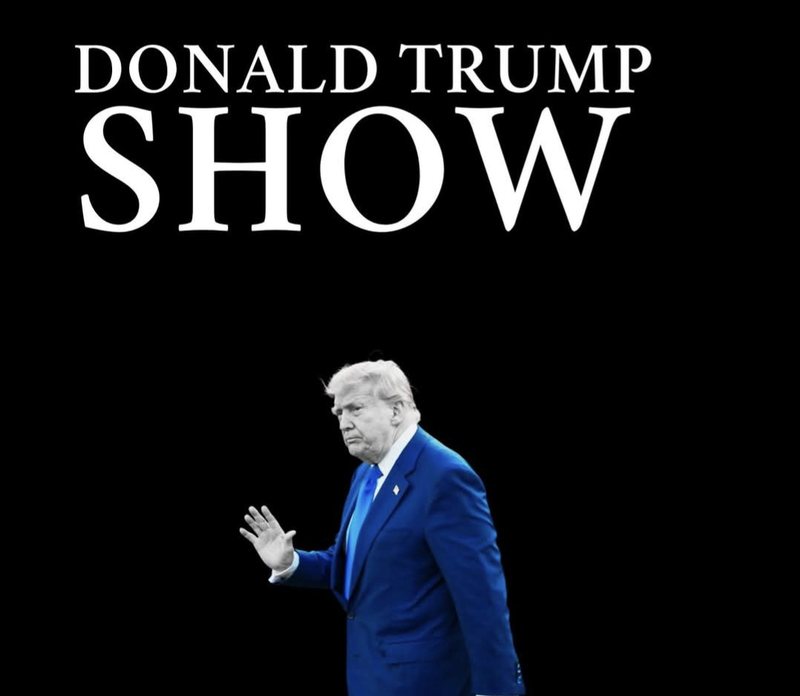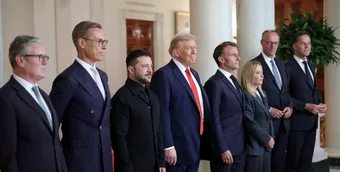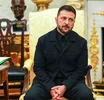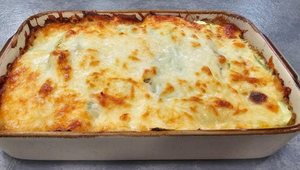
Donald Trump Show


The large press conference room awaits in silence, for more than an hour, the arrival of Donald Trump.
There is only one podium on stage: the president does everything himself, grants and revokes the right to speak; he knows the journalists, especially those from "fake news" outlets like CNN, MSNBC, and the New York Times.
At 4:00 p.m., “The Donald” emerges from backstage, wearing his usual blue suit and red tie. He walks slightly hunched over, as if he wants to penetrate the thick atmosphere.
The first round of questions and immediately the press room turns into chaos. Some stand up and shout, others scream into the microphone, or wave their hands to attract attention.
In this second term, Trump seems significantly more controlled.
His innate penchant for insults and aversion to the media crystallizes in dry jokes, drawing smiles even when he strongly rebukes the Spanish, the only ones who have opposed the increase in military budgets, or when he mocks well-known American television journalists.
The dialogue and dynamics with journalists best reflect Trump's powerful moment, his day as a protagonist at the NATO summit in The Hague.
After six months of apparent failures on the international stage, the American president thinks he can finally emerge victorious.
It talks endlessly about bombing nuclear facilities hidden in the Fordow Mountains in Iran.
He praises the pilots, "great heroes," and attacks CNN and the New York Times, which, according to him, "write garbage" and question the outcome of the operation.
The buildings have been destroyed, but Trump cites Israeli intelligence reports about the location of the uranium – although US intelligence has not yet confirmed anything with certainty.
Trump maneuvers through the technical details with a kind of forced ease. But the goal is clear: to give the impression that we have reached the end of the “cold war of words” between the Ayatollahs and Israel.
He goes so far as to compare the attacks on Iranian reactors to the atomic bombs dropped on Hiroshima and Nagasaki. As if to say: they were used to end a war, just like Truman.
In the late 1990s, Secretary of State Madeleine Albright called the United States “the indispensable nation.” And here we are 25 years later, in the heart of Old Europe, listening to a man introduce himself as “the indispensable president.”
Everything that happens for good in the world – the ceasefire between India and Pakistan, the stability of Kosovo – is, according to him, “something that has never been seen before,” or “monumental”: victories that Trump associates with his own name.
One of them: the fact that, according to him, it has forced European countries – these "parasites" – to spend more on defense.
And if something goes wrong, then the blame is sought elsewhere. The most obvious example: the conflict in Ukraine. Why hasn't Trump found a solution yet? "Because it's more difficult than it seemed at first, there were problems with Putin and with Zelensky."
Trump tries to explain himself to a Ukrainian journalist, who, with a shaky voice, manages to secure the microphone to ask a question. One of the most specific, in fact: "Mr. President, today you met with Zelensky. Are you going to send the missiles? Are you going to send the weapons needed to defeat the Russians?"
Trump asks: "You live in Ukraine?"
– “No, I am in Warsaw, but my husband – a soldier – has remained on the front line.”
Trump responds: "We'll do what we can. I told Zelensky that too. I know there's a need for Patriot missiles, but we don't have any available right now. We've sent a lot to Israel. I know it's hard, but don't be discouraged. You said a good thing to me, and I wish you a lot of strength."
The American president praises “the return of American deterrence,” a concept that harks back at least 40 years to the Cold War era. It could work, perhaps, with the ayatollahs.
“We'll meet the Iranians next week,” Trump says, and adds grandly:
"We'll see if we can negotiate a deal. In the meantime, they can sell the oil to whoever they want – starting with China."
But there is no signal coming from Russia. Putin is the factor that endangers the myth of the "indispensable president," on which "The Donald" is working diligently./ Corriere della Sera

The Ukraine summit that ignored the tough questions
ideas
top
Alfa recipes
TRENDING 
services
- POLICE129
- STREET POLICE126
- AMBULANCE112
- FIREFIGHTER128



























